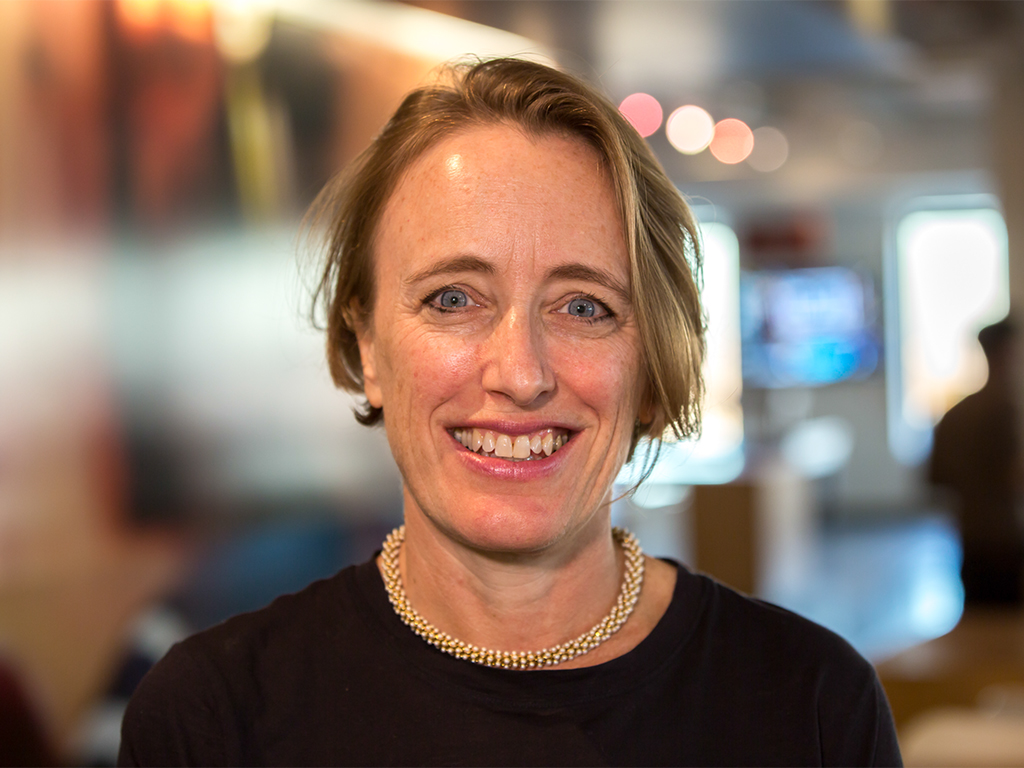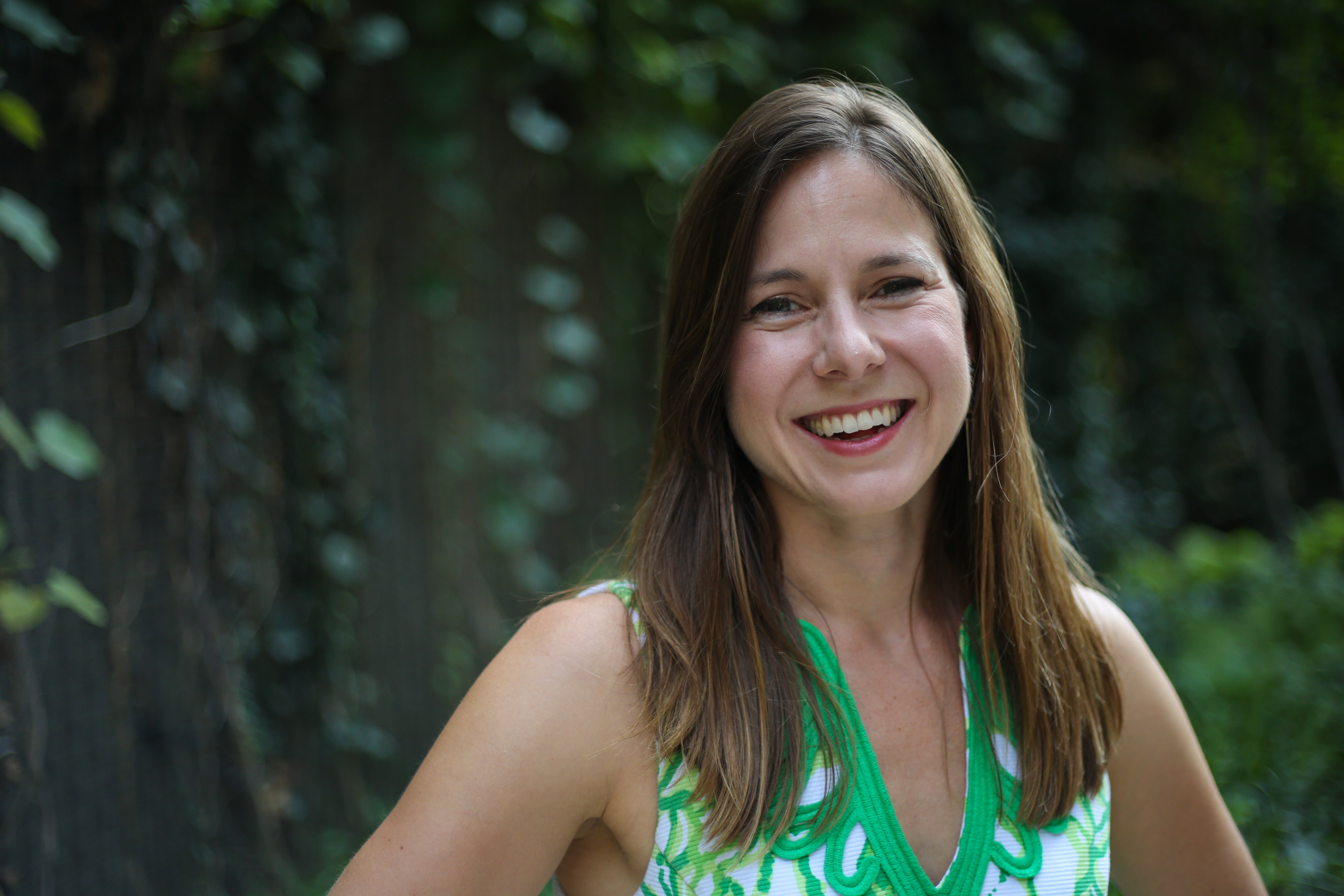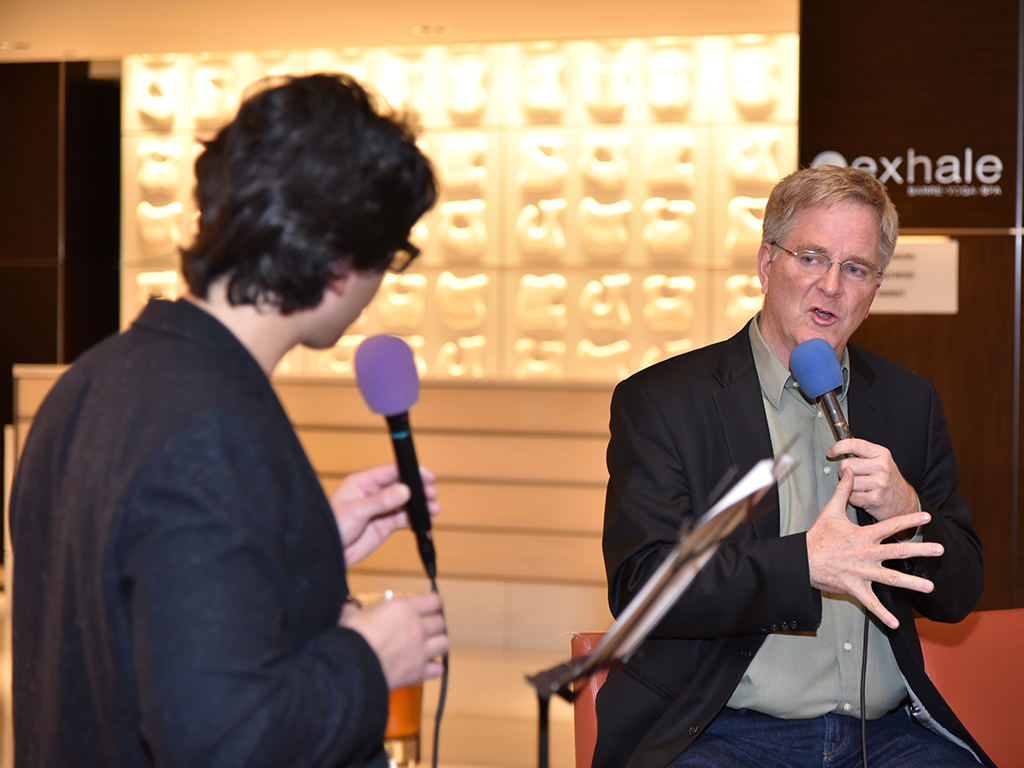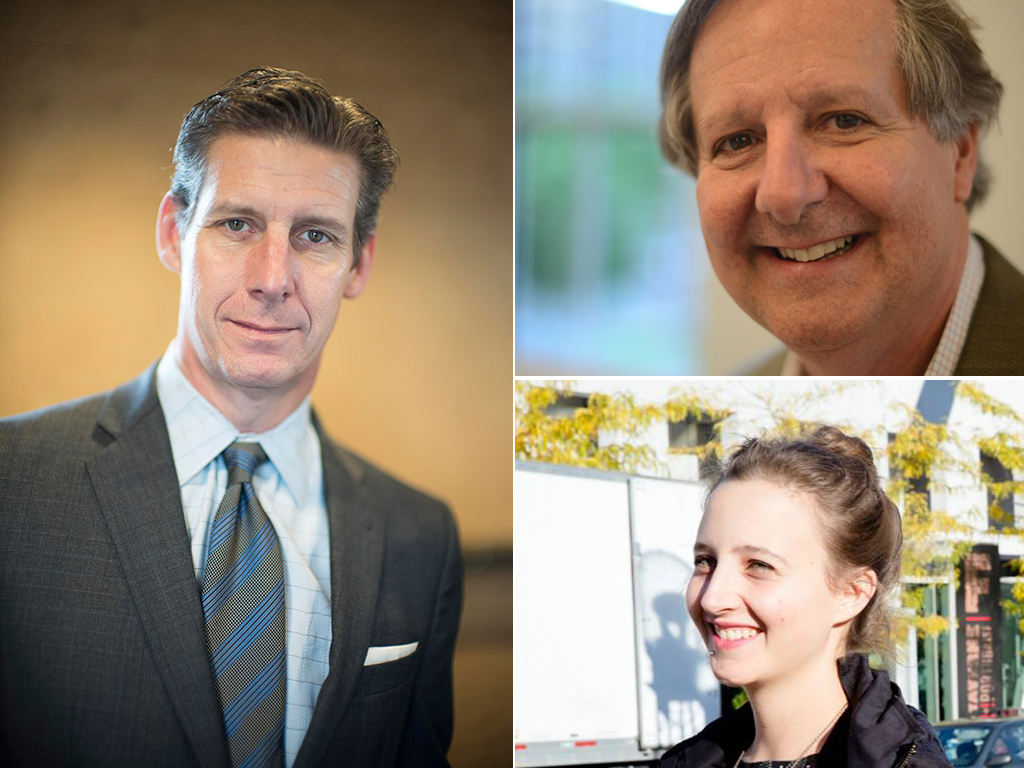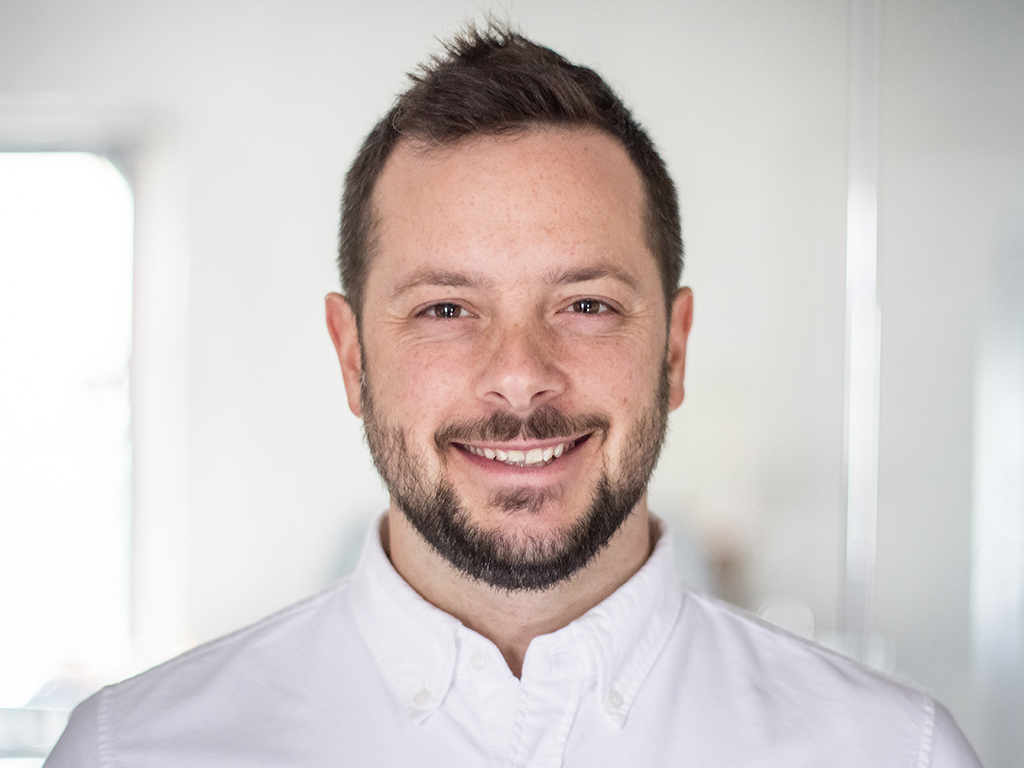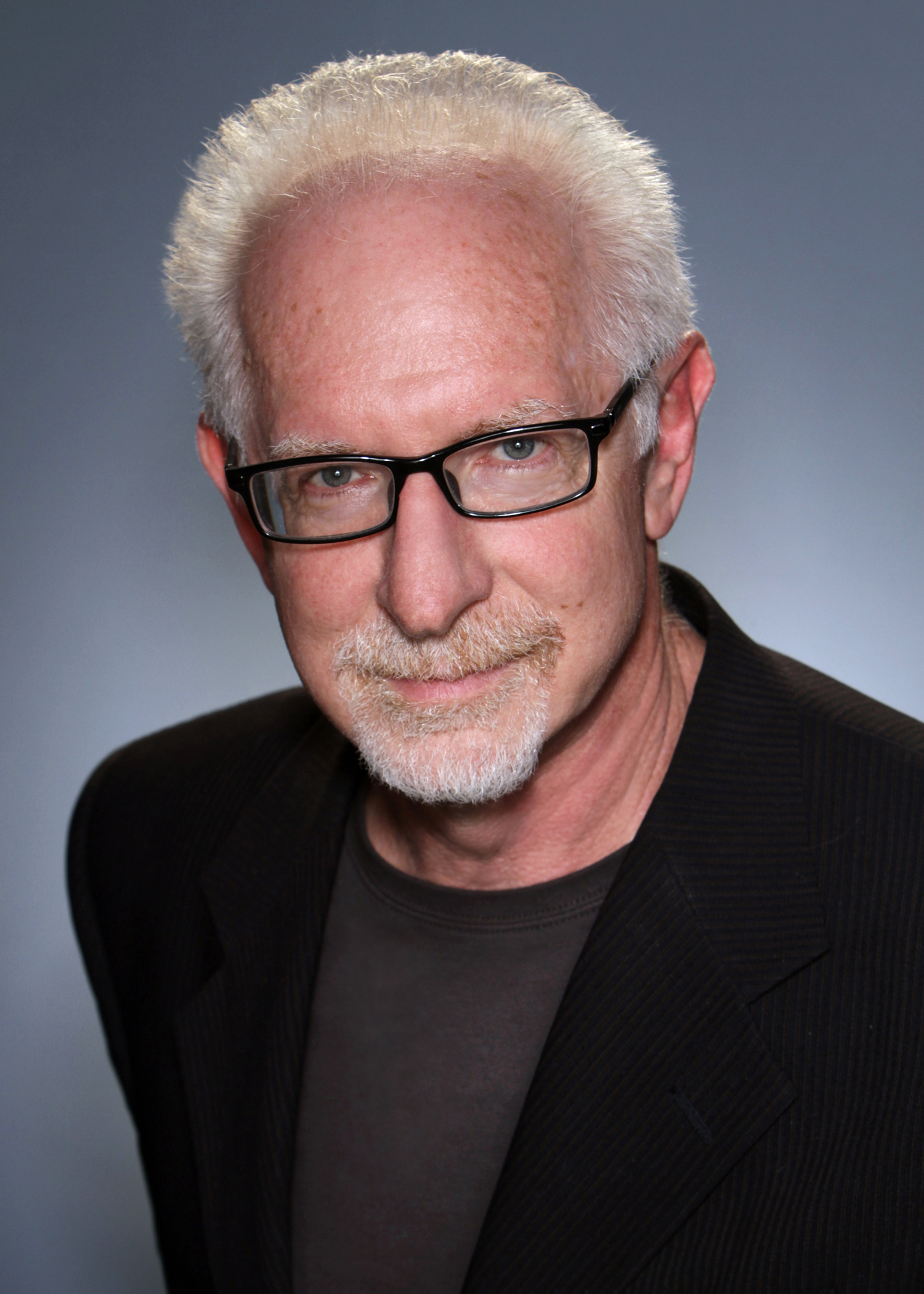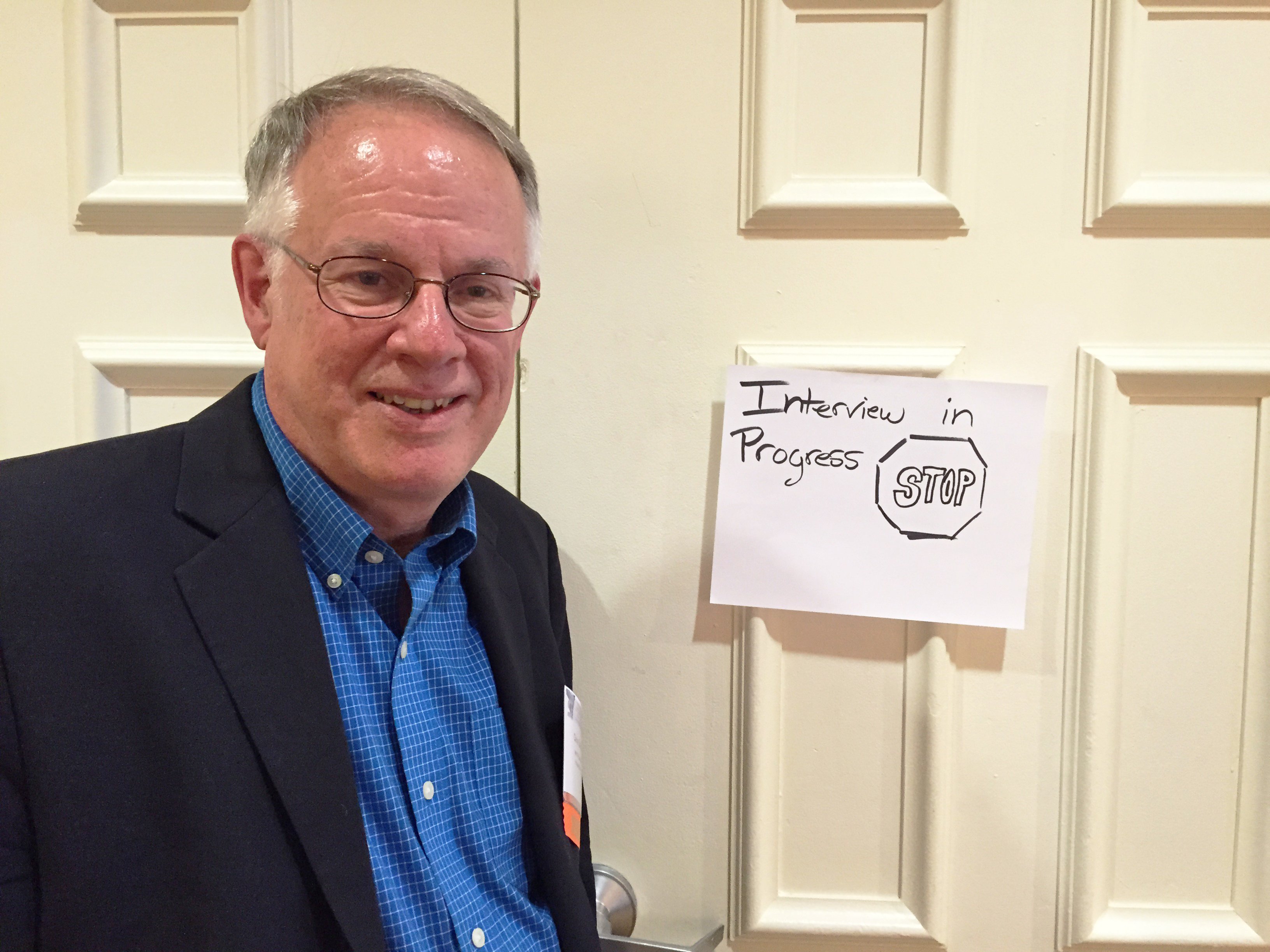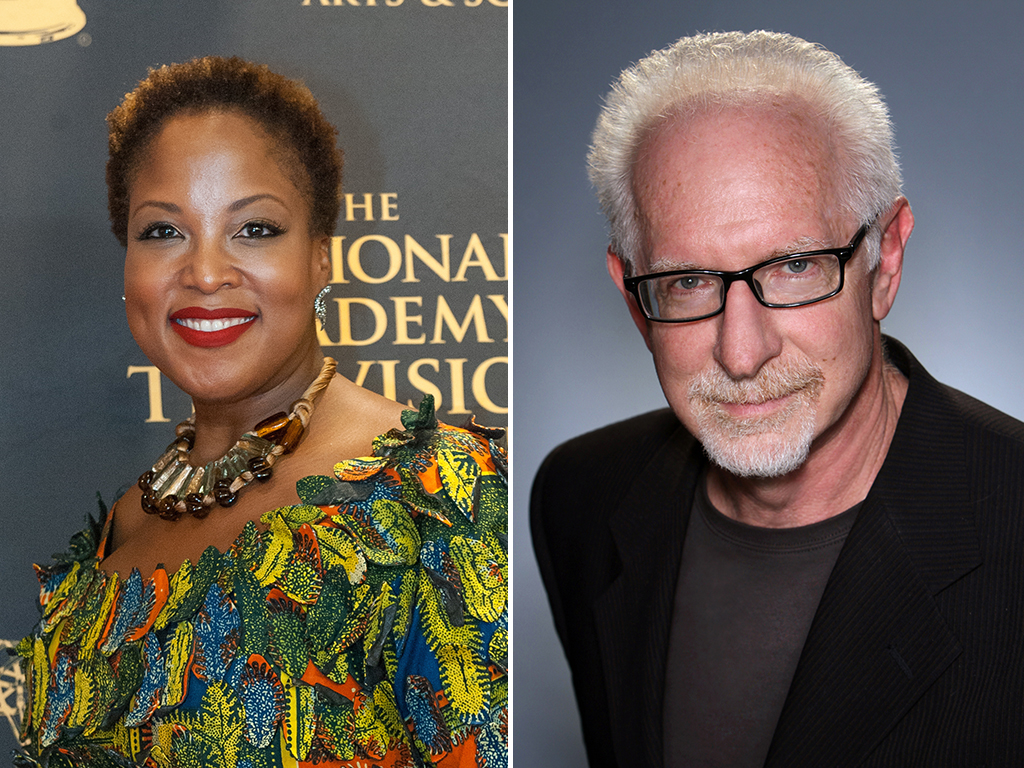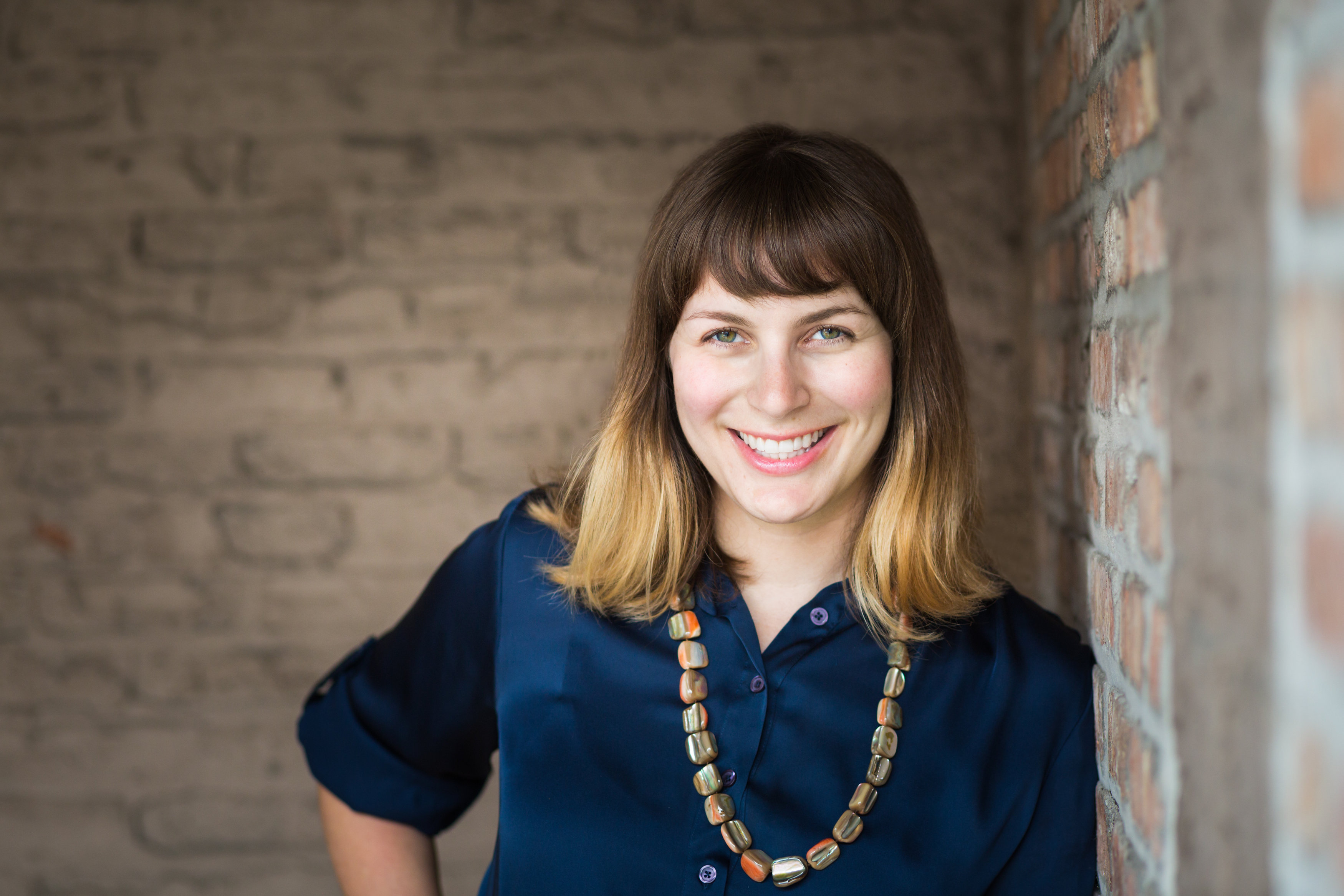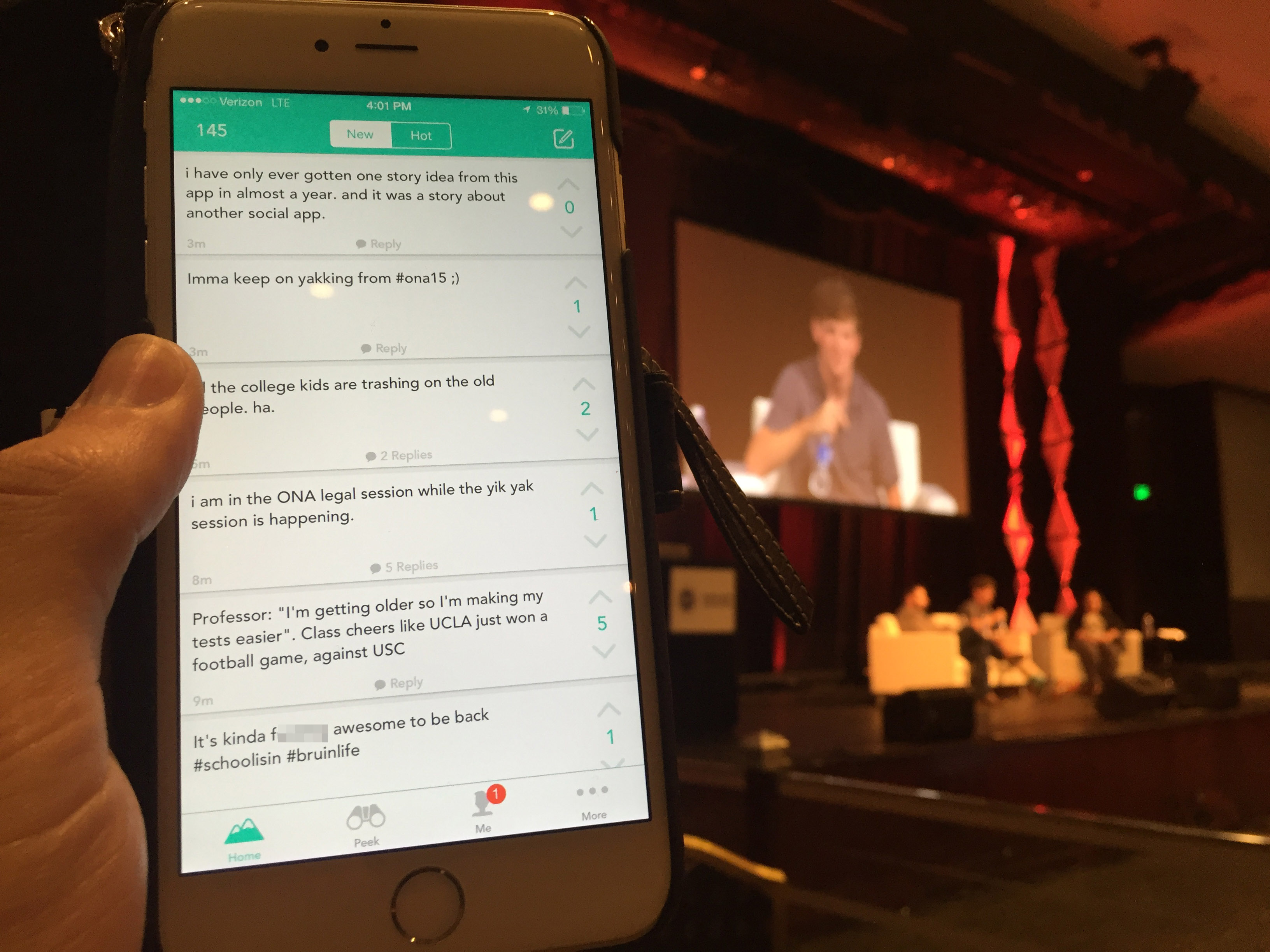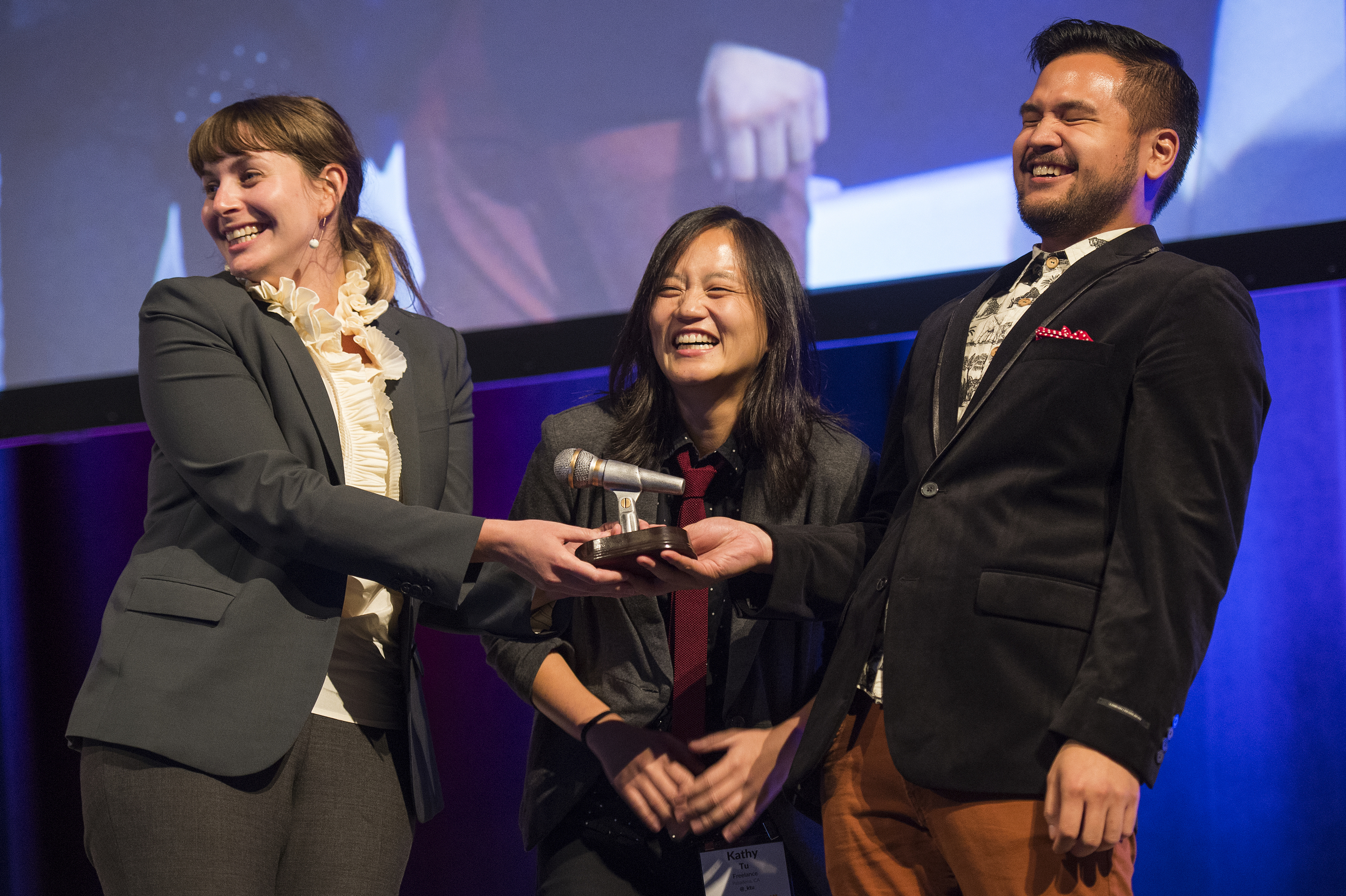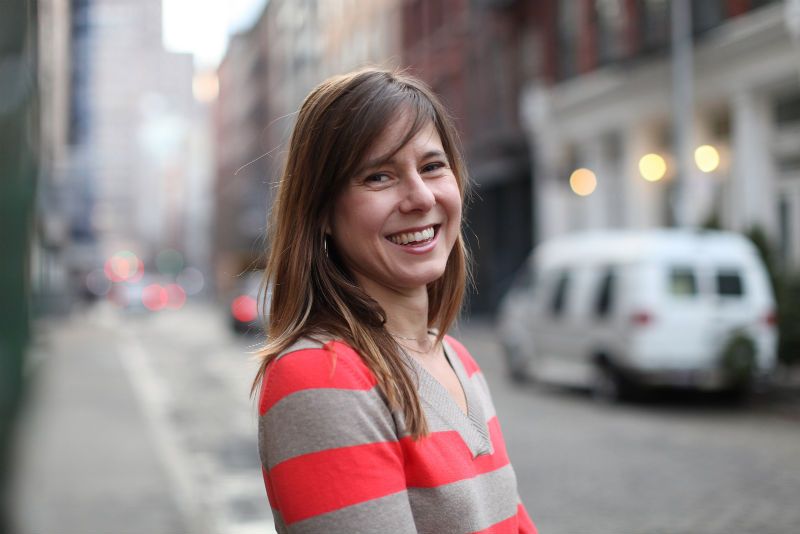Author: Adam Ragusea
Adam is host of Current's podcast, The Pub. He's a Journalist in Residence and Visiting Assistant Professor of Journalism at the Center for Collaborative Journalism at Mercer University in Macon, Ga. He’s also reported for public radio shows including Morning Edition, All Things Considered, Here & Now, Marketplace and The Takeaway. Before becoming a journalist, Adam studied music composition, and he creates all the music for The Pub.
‘The Pub’ #45: Audible’s Martha Little says public media should be ‘feminized’
Little says public media workplaces work better when they’re flatter and more collaborative.By Adam RaguseaNovember 19, 2015Anna Sale on podcasts: ‘People feel a relationship with the show’
The host of Death, Sex & Money on how she gets her guests to share intimate details.By Adam RaguseaNovember 13, 2015‘The Pub’ #44: Public media travel guru Rick Steves, live in Atlanta
The travel host discusses his business model, whether he feels pressure to follow Vice’s example, his advocacy for marijuana legalization and more.By Adam RaguseaNovember 12, 2015‘The Pub’ #43: Why public media are sponsoring polls, and how a CBC video went ...
How do political polls fit with public media’s mission?By Adam RaguseaNovember 5, 2015‘The Pub’ #42: This American Life’s Stephanie Foo on how to fix public radio’s whiteness ...
Foo talks about her frank and funny manifesto for Transom, “What To Do If Your Workplace Is Too White.”By Adam RaguseaOctober 29, 2015The Pub #41: Marketplace’s Ben Johnson and his unusual new podcast, Codebreaker
Everybody has a new podcast these days, but this one does something quite novel with the medium.By Adam RaguseaOctober 22, 2015Fred Jacobs: “To a great degree, public radio has two audiences”
The audience researcher discusses findings of his company’s latest Public Radio Tech Survey.By Adam RaguseaOctober 21, 2015‘The Pub’ #40: Chris Satullo, WHYY’s former v.p. for news
Satullo had big, somewhat unorthodox plans for news at Philadelphia’s dominant public radio and television station.By Adam RaguseaOctober 15, 2015‘The Pub’ #39: Public radio’s two audiences, PBS news VP Marie Nelson, Auto-Tune on kids’ ...
Research shows that baby boomers and millennials are not only listening to public radio differently, but for different reasons.By Adam RaguseaOctober 8, 2015‘The Pub’ #38: Robin Amer, winner of WNYC’s Podcast Accelerator competition
If you want to know how to impress the likes of WNYC, pay attention to how Amer did it.By Adam RaguseaOctober 1, 2015Five things public media can learn from Yik Yak, the most depressing college-oriented social media ...
If public media wants to serve college students better, it should think more about providing content in the places where college students ...By Adam RaguseaSeptember 28, 2015Podcast Accelerator contest winners will make pilots with WNYC
The would-be producers of The City and Gaydio will get production help from the New York City station.By Adam RaguseaSeptember 26, 2015‘The Pub’ #37: Death, Sex & Money’s Anna Sale, live from Los Angeles
The WNYC podcast host on how she draws the most intimate details from her guests.By Adam RaguseaSeptember 26, 2015Media leaders spill their revenue secrets to Kai Ryssdal at ONA
Executives shared tips about growing income through membership, advertising and live events.By Adam RaguseaSeptember 25, 2015‘The Pub’ #36: How loudness technology can make audio better, with APM’s Rob Byers
The technology knows that our ears perceives frequencies differently and accounts for the discrepancy.By Adam RaguseaSeptember 17, 2015


